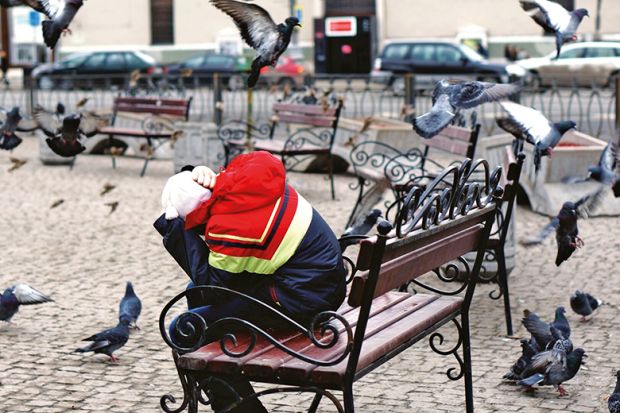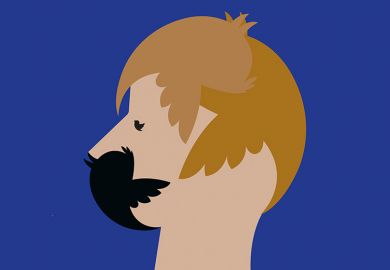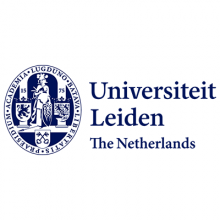Two academics who were bombarded with death and rape threats after they were selected by Twitter to research communication on the platform have warned that such incidents will make scholars afraid to speak to the public.
Rebekah Tromble, assistant professor of political communication at Leiden University, and Patricia Rossini, a postdoctoral researcher at Syracuse University in New York state, said that they had feared for their safety during an onslaught of tens of thousands of hostile tweets, comments and emails last July. Police were forced to step up patrols around Dr Tromble’s house.
Only now do the pair feel comfortable talking about their ordeal, Dr Tromble told Times Higher Education.
The online storm broke just hours after the research into civility and tolerance on Twitter was announced, as critics dug up tweets attacking US President Donald Trump made by Dr Tromble, Dr Rossini and other members of the team.
Much of the US conservative online world seized on these Trump-critical tweets as evidence that the project was likely to lead to Twitter censoring conservatives. The research even provoked criticism from Ronna McDaniel, the chair of the Republican Party.
Within 36 hours of the research announcement, 24,000 tweets had mentioned one or more members of the team.
“I faced an overwhelming amount of death and rape threats,” said Dr Tromble.
The attacks, on Twitter, online forums and in the comment sections of news articles, ranged from some “legitimate criticism” of the project and plain insults – “you’re ugly” – to threatening emails, explained Dr Rossini.
On Twitter, there were also a number of antisemitic attacks on Dr Tromble, from users who mistakenly assumed she was Jewish.
In the early hours of the online storm, “I tried to view this with my professional, academic researcher hat on, thinking that I could keep a distance”, recalled Dr Tromble.
“But I watched for far too long, and it had a really deep effect on me,” she said. Both researchers soon turned over their Twitter accounts to others to shield themselves from the abuse and report the nastiest comments.
“We were scared, we were afraid,” said Dr Rossini. Under the weight of so many threats from so many sources, “you don't know if these people know who you are”, she added.
In one incident shortly after the controversy blew up, Dr Rossini was at a political science conference in Boston, when one online harasser ominously mentioned he was in the city too.
“What if this guy is crazy? I’m walking around with a name tag. If he wants to find me, he could,” she said.
Even though Dr Tromble was in the Netherlands, away from the centre of anger in the US, she too received specific threats, including by one person within the country who was questioned by Dutch police.
The threats were specific enough to force Dr Tromble to vary her routine, working in a different office, taking her name off the door and leaving her phone off the hook.
“I had insomnia and panic attacks for two-and-a-half to three weeks afterwards,” she said. “Where I could tell myself rationally ‘you’re OK, you're safe’, I couldn't turn off the psychological and ultimately physiological response.”
“Just doing things like walking out my front door, I was doing extra checks, looking around – is there anyone else here? – literally looking over my shoulder for weeks afterwards,” she recalled.
The online backlash blew up despite the fact that the research project seeks to measure how intolerant debate is about, for example, immigration, or to work out whether users are simply inhabiting echo chambers of left- or right-wing views. It does not aim to develop ways to flag or censor tweets.
Twitter “won't be able to use our work to ask: is this specific tweet intolerant?”, explained Dr Tromble.
But given the “overwhelming” amount of criticism that came flooding in, it became “impossible” to explain the nuances of the project to critics online, said Dr Rossini.
As for accusations of the team’s anti-Trump bias, Dr Tromble said she welcomed genuine scrutiny of its research methods. “If I were going to hide my views to pretend I’m apolitical, I think that would actually be much, much more problematic,” she added.
When the project, set to start this year, does eventually yield findings, the team face the delicate task of communicating the results without provoking another round of hatred. “There’s no doubt that we will risk continued backlash,” said Dr Tromble.
Such online harassment cannot “silence” academics, argued Dr Rossini, but the danger is that such a backlash makes it harder to speak to the public.
“It runs the risk of pushing us back behind our walled garden,” said Dr Tromble, who warned: “If we can’t talk to the public, it diminishes academic freedom, it diminishes the work itself.”
POSTSCRIPT:
Print headline: Twitter scholars bombarded with death and rape threats
Register to continue
Why register?
- Registration is free and only takes a moment
- Once registered, you can read 3 articles a month
- Sign up for our newsletter
Subscribe
Or subscribe for unlimited access to:
- Unlimited access to news, views, insights & reviews
- Digital editions
- Digital access to THE’s university and college rankings analysis
Already registered or a current subscriber? Login











